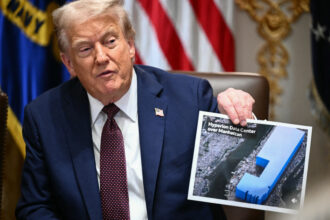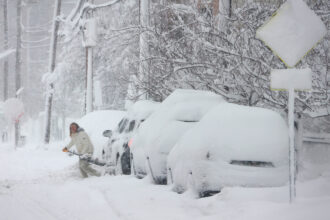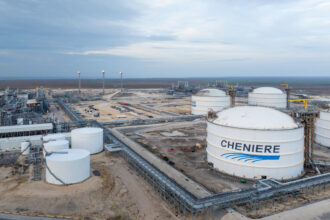Stimulus plans could fix the global financial system and the climate. Now all we need is for governments not to blow the chance, argues Lord Nicholas Stern, ex-chief economist of the World Bank, in a new report, An Outline of the Case for a "Green" Stimulus:
"With billions about to be spent by governments on energy, buildings and transport, it is vital that these public investments do not lock us for many more decades into a costly and unsustainable high-carbon economy."
The report, co-authored by many of the same economists who contributed to the influential Stern Review, calls on governments to include $400 billion in green spending in their stimulus plans. That’s 20 percent of the estimated $2 trillion that nations are likely to spend on economic packages in total, or four percent of global GDP.
That kind of green cash injection would create "a more effective fiscal stimulus, building the foundations for sustainable, strong growth in the future, rather than unsustainable bubbles," the report says. In the short-term it would create a substantial number of new green jobs.
The biggest employment gains would be made through energy efficiency and renewable energy measures. Here’s why:
Renewable energy industries appear to be more labour intensive than the existing energy sector, particularly at the initial construction, manufacture and installation stage that is most relevant for a short-term fiscal stimulus.
Similarly, energy efficiency measures would be "particularly effective as part of a fiscal stimulus, as they could be implemented quickly and would be relatively labour-intensive." More:
Spending on energy efficiency measures is likely to be directed towards domestic construction sector activity and hence have a low rate of leakage into imports, increasing the domestic fiscal multiplier — a potentially important consideration for any government that is uncertain about the likely fiscal policies of its trading partner.
Speed is key. The money must be set aside by summer 2009 and spent by mid-2010.
Indeed, any delay would be costly.
That is essentially the same message Lord Stern delivered in his seminal 2006 report, The Economics of Climate Change: The Stern Review. In it, he concluded that doing nothing on global warming would wreck the global economy, deflating it by a fifth and creating risks "on a scale similar to those associated with the great wars and the economic depression of the first half of the 20th century."
To avert disaster, he concluded, nations would need to spend one percent of their GDP.
It was the first report of its kind from a world renowned economist, and its underlying conclusion, that climate action is cheaper than inaction, is approaching an economic consensus.
In 2008, Stern issued a correction to his findings to account for faster than expected climate change. The cost of avoiding climate catastrophe is actually two percent of global GDP, he said. That’s still much cheaper than business as usual.
Importantly, this week’s report blows apart the convenient untruth that it is better to delay such aggressive climate action until the world economy recovers. The truth is:
Action on climate change remains urgent. If policy-makers were to put action off until the impacts of climate change forced the issue to the top of the political agenda, the stock of greenhouse gases that would have built up in the atmosphere as the flows of emissions accumulated would entail severe and increasing risks for many decades.
Some 34 nations have started stimulus programs to beat the economic downturn, according to The Christian Monitor, worth over two trillion dollars in public funds. The opportunity offered by the recession must be harnessed. In Lord Stern’s words:
The economic case for tackling the global climate crisis is more compelling than ever.
About This Story
Perhaps you noticed: This story, like all the news we publish, is free to read. That’s because Inside Climate News is a 501c3 nonprofit organization. We do not charge a subscription fee, lock our news behind a paywall, or clutter our website with ads. We make our news on climate and the environment freely available to you and anyone who wants it.
That’s not all. We also share our news for free with scores of other media organizations around the country. Many of them can’t afford to do environmental journalism of their own. We’ve built bureaus from coast to coast to report local stories, collaborate with local newsrooms and co-publish articles so that this vital work is shared as widely as possible.
Two of us launched ICN in 2007. Six years later we earned a Pulitzer Prize for National Reporting, and now we run the oldest and largest dedicated climate newsroom in the nation. We tell the story in all its complexity. We hold polluters accountable. We expose environmental injustice. We debunk misinformation. We scrutinize solutions and inspire action.
Donations from readers like you fund every aspect of what we do. If you don’t already, will you support our ongoing work, our reporting on the biggest crisis facing our planet, and help us reach even more readers in more places?
Please take a moment to make a tax-deductible donation. Every one of them makes a difference.
Thank you,











